
or
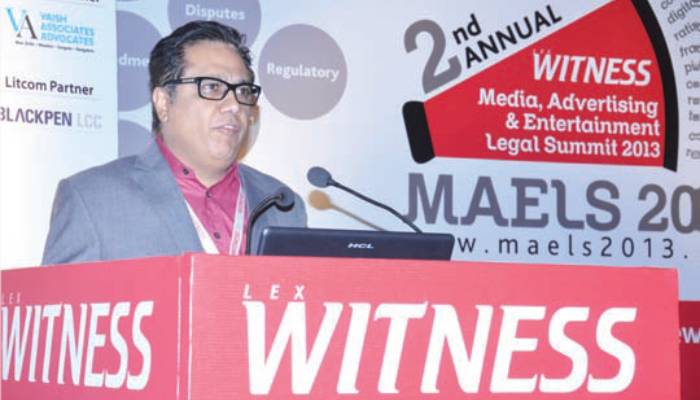
he second annual MAELS – Media, Advertising & Entertainment Legal Summit 2013 – was held on September 20 in New Delhi, giving all stakeholders in the three industries a chance once again to come together and share thoughts and ideas on a number of issues facing them. The event was organized by Lex Witness – India’s 1st Magazine on Legal and Corporate Affairs.
Lex Witness Group Editor & CEO Shyam Grover, while delivering the welcome address, recalled that India today has more than 77,000 registered publications, nearly 800 television channels, 250 licences of radio FM channels, more than a thousand accredited advertising agencies and that it produces 1,000 feature films a year, to indicate towards the reach and the influence media has on the masses. But these indicators have also brought numerous challenges in terms of globalization of content and legal and regulatory issues, which need to be discussed on a platform like MAELS, Mr. Grover said. The sessions organized as part of the Summit were interactive, giving participants a chance to communicate directly with the experts in the different fields. Dr. Lalit Bhasin, President, Society of Indian Law Firms, said events like MAELS give people a chance to network with each other, which is an important factor to grow in any industry. The change in the structure and nature of the media industry calls for such summits, he said. Since media, advertising and entertainment influence society majorly, it becomes pertinent to not just discuss regulation but self-regulation, Dr. Bhasin added, to avoid outside interference. Since they can be “unruly horses” if not regulated, Dr. Bhasin exhorted members of the three industries to inculcate a sense of responsibility to the country to avoid becoming victims of too many regulations. Dr. Bhasin was felicitated on the occasion for completing 50 years in the industry.
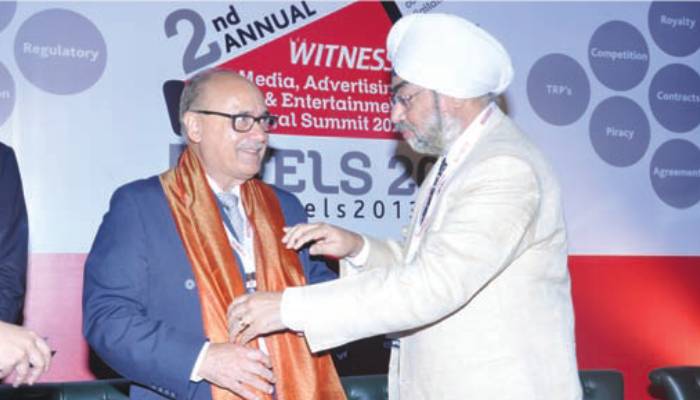
Amarjeet Singh Chandhiok, Additional Solicitor General of India and Delhi Bar Association President, said the world is watching the Indian media and therefore it needs to exercise its authority with responsibility. The regulation must be within, he argued, to avoid any regulation to be imposed
In the first session on decoding implications of Copyright Act 2012, chaired by TMT Law Practice partner and lawyer Abhishek Malhotra, the panellists discussed issues surrounding the amendments. The major issues centred on the constitution of a permanent copyright board, performers’ rights, compulsory licensing and moral rights. Mr. Malhotra said amendments to sections 17, 18 and 19 of the Act were full of ambiguities and politically charged. The panellists included Zameer Nathani, Head – Legal, Balaji Telefilms Limited and Balaji Motion Pictures Limited; Gowree Gokhale, Partner, Nishith Desai & Associates; Anil Lal’e Associate VP – Legal, Viacom 18 and Ayan Roy Chowdhury, Senior Manager Legal, Sony Entertainment Television. Mr. Nathani dwelled on the contention between author and the owner and the current practices in the media industry relating to their issues. Ms. Gokhale said that in media industry “since entire libraries are transferred from one entity to another, limiting clauses hamper activities of the industry”.
An important issue discussed was on the need for a statutory licensing regime under Section 31D to cut threat to a user’s work and decide on the money to be paid for using it. There are ambiguities marring this section like whether it will be applicable across or in special cases, the panellists said. It is up to the Copyright Board to determine royalties which will apply to all situations, said Gokhale, adding the Section does not limit itself to Indian works because the current law does not mention the area of publication which is eligible for royalty.
The next session was on royalty and taxation issues, chaired by Narayan Ranjan, CFO, Viacom 18 and Nishith Desai, Founder, Nishith Desai Associate moderated by Rajesh Simham, Head, International Tax Practice Nishith Desai Associates and panellists were, and Avnindra Mohan, President, Legal and Regulatory, Zee Network and Vineet Magan, Regional Tax Manager, BBC. Mr. Ranjan gave industry inputs on amendments to the Copyright Act, saying, “Changes in Copyright Act are related to confusion despite noble intentions. They are not articulated well, leading to current debates around them.” He said the industry does pay when using copyright material, adding the real issues surrounded counting royalty, the person to be paid and the mechanism of payment. The need of the hour, he added, is to have simplicity and ease around these issues so that the industry can move forward and not be embroiled in litigations.
Mr. Desai said the laws in India are not amended with prospective but also retrospective effect. The issue of royalty is getting compounded with a number of issues miring the copyright debate, he said, adding, other issues to ponder upon are whether foreign authors are covered in the Act and in case the broadcasting takes place abroad, will it be shared in foreign exchange or Indian currency. He said the tax department has become “extra imaginatory” which has resulted in a negative environment in the industry.
The third session was about the year gone by for the media industry, its events, expectations and results. A presentation was
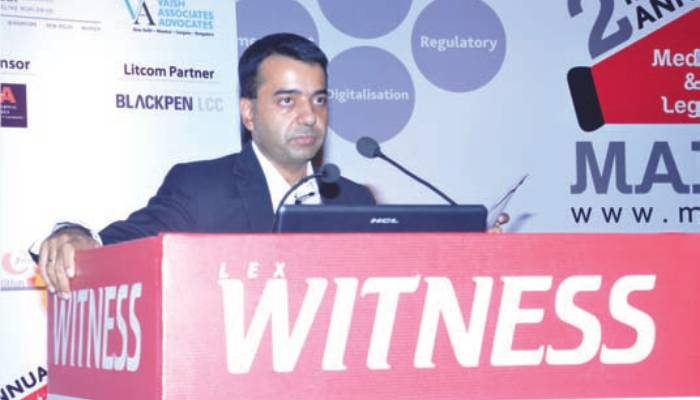
made by Abhishek Malhotra, Partner, TMT Law Practice , who spoke of copyright, regulatory and commercial issues. Around the copyright issues, the factors touched upon were the inclusion of Copyright Rules since 2013, writs seeking statutory license and challenging the Copyright Act, the formation of the Performers’ Society and the Supreme Court taking up the appeal against High Court order in IPRS matter. Regulatory issues affecting the broadcasting space discussed included the advertisement cap imposed by the TRAI and the implementation of the two phases of Digital Addressable System introduced last year. Discussions were also held around limiting the role played by content aggregators; the Broadcasting Content Complaints Council which is the selfregulation body of the IBF; and the spectrum fee raise of FM by 300 per cent. In the commercial sphere, the main events discussed were the tussle between broadcasters and advertising companies over billing issues, the merger of Star Den and Zee Turner to form MediaPro, TAM being taken to CCI by Prasar Bharti, and around comparative advertising.
The fourth session was on self-regulation and future regulation for content and advertisement. It was chaired by Vir Sanghvi, Member,
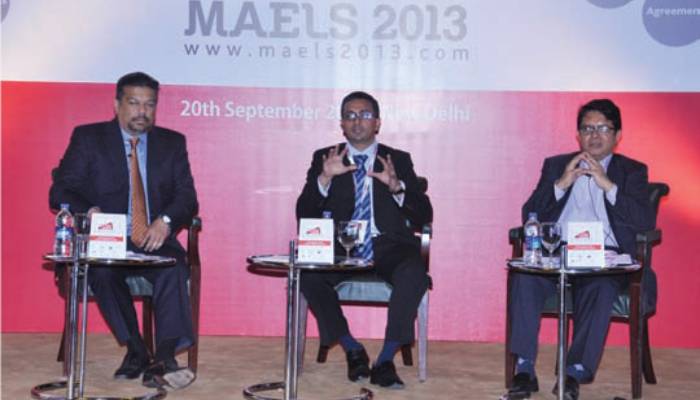
BCCC. The panellists were Sailesh Shah, Secretary General, Indian Broadcasting Foundation Zameer Nathani, Head – Legal, Balaji Telefilms Limited and Balaji Motion Pictures Limited. Mr. Shah said regulation of content of broadcast is ambiguous but there are five layers that define television broadcast, “a) viewers must love the content shown, b) distributors make money out of that content, c) broadcasters make the content available at price affordable to them, which will happen, d) if advertisers make money, leading to e) people getting jobs in media”. Self-regulation content refers to creative freedom of expression and the responsibility it demands, he said, adding, if these are exercised properly, no regulation will be imposed by an external body. Mr. Nathani said production houses face more practical problems in terms of litigations despite research and valid evidence taken into consideration before providing content to audience. Production houses face scrutiny of court despite observing self-regulation, he rued.
Mr. Sanghvi reflected on the role of the BCCC, saying though it takes active interests in complaints regarding right to privacy, insult to women, propagation of regressive social practices and restricting time of adult programming, Indian channels seem to be working well in terms of refraining from showing content poor in taste. He said the need of the hour is to respect each other’s right of freedom of expression to ensure the liberal democracy does not lose out in the process of regulation.
The next session centred on issues regarding “carriage and distribution regulation”, chaired by Amit Arora, Executive Vice- President, India Cast Media Distribution Pvt. Ltd. The panellists were Avnindra Mohan, President, Legal and Regulatory, Zee Network; Ashish Chandra, Head Media & Technology,
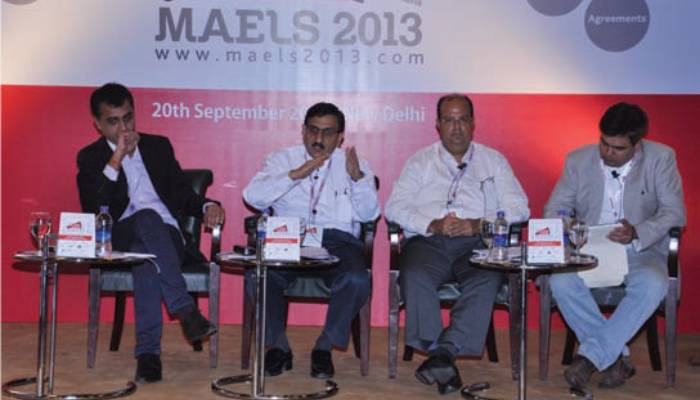
Reliance Industries and Rajiv Khattar, President (Projects) Dish TV. Mr. Arora said distribution is one of the most dynamic areas of the media but it itself is going change because in the forefront is the way the consumer wants to consume content and “convenience of what to watch and how to watch is of importance, forcing content developers to innovate”.
Reflecting on the one-year-old journey of digitization, Mr. Mohan said it was necessitated by issues of transparency, capacity constraints and the need to give more choice to consumers. He added digitization era is a revolution, which has empowered consumers to exercise their choice but also controlling cable/DTH bills. Responding to the challenges, Rajiv Khattar said it will be around addressing the real choice of consumers while the mid- term challenge will include recovering the content costs. Ashish Chandra, however, pointed towards disruptive innovations that will challenge broadcasters, for instance development of software that crop advertisements and development of second hand e-books and e-content. These will also challenge licensing and jurisdiction regimes, he added. The panellists were in agreement that regulation on pricing on broadcasters, which is frozen since 2003, has put constrains on quality content and with digitization, these should be withdrawn.
The next panel discussion was on Competition Act and implications for media and entertainment industry, chaired by MM Sharma, Head, Competition Law and Policy, Vaish Associate Advocates with panellist Kunal Rajpal, AVP – Legal & Secretarial, Viacom 18 & Ashish Chandra, Head Media & Technology, Reliance Industries.
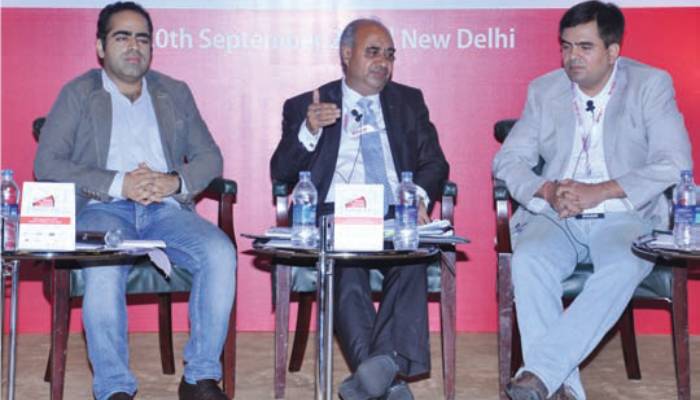
Mr. Sharma said digitization has increased competition and introduced audience to issues related to competition law like abuse of dominance, merger control as well as those related to media and advertising sector. Ashish Chandra, Media Head, Reliance Industries, said every business need assurance to make investment in business. “Therefore giving them some monopoly acts like giving them incentive to innovate; however, they should exercise this monopoly in the best interest of consumers even as monopoly can be broken in terms of inter-operatability which gives people choice to migrate, for instance from Dish TV to an MSO,” he added. Though dominance of market is not bad, it should not be abused, the panellists contended.
The last panel discussion centred on contracts and dispute resolution chaired by Preet Dhupar, COO, BBC World, while panellists were Ajay Thomas, Registrar, LCA India; Kaushik Moitra, Partner, TMT Law Practice; and Anup Bhambani, Legal Counsel, NBA. Ms. Dhupar said change is constant to media industry, aided
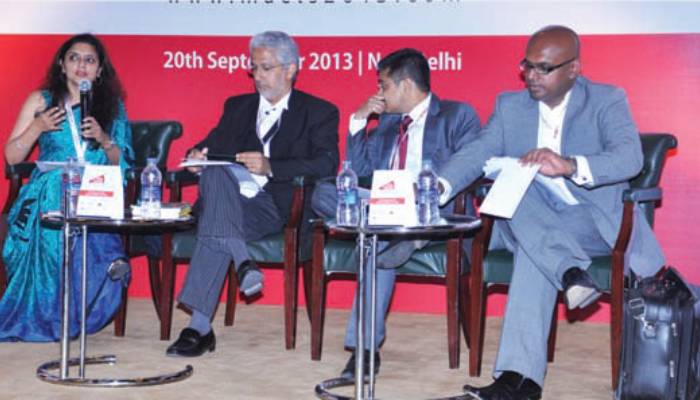
by technology and regulation. Mr. Bhambani took a critical note of telecom regulator as broadcasting regulator and said it can monitor technologies but not content since it was never under its domain. The entry of TRAI into content regulation which is unconstitutional, Mr. Bhambani contended. Mr. Moitra added making telecom regulator a broadcast regulator was a kneejerk reaction by the government without understanding the concerns of the stakeholders. It was agreed by the panellists that both the regulators and the government need to reach a better understanding of the media industry before it resolves its disputes.
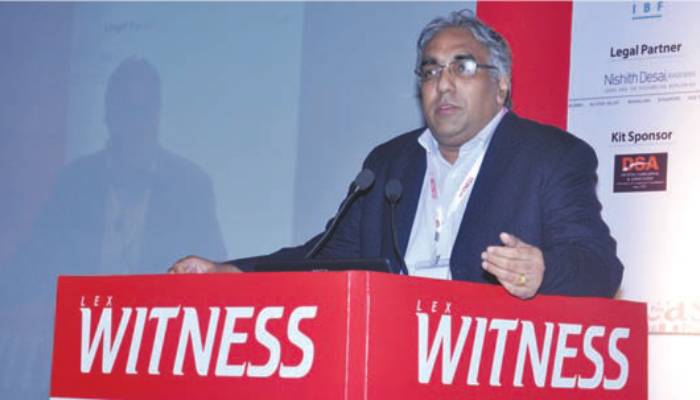
The curtains were drawn on the Summit by PBA Srinivasan, Editor-in-Chief, Lex Witness, who reflected on the diversity of the issues discussed, and thus its significance for the concerned industries.
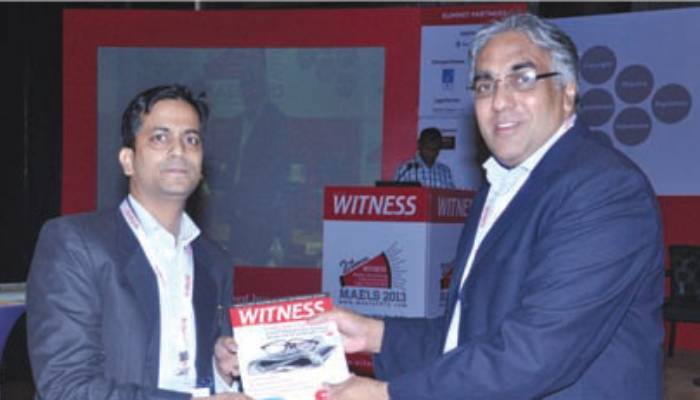
The Exciting day came to an end with announcing the winner for Lex Witness one year subscription to Piyush Jain, Senior Manager Legal, HT Media Ltd.
The LW Bureau is a seasoned mix of legal correspondents, authors and analysts who bring together a very well researched set of articles for your mighty readership. These articles are not necessarily the views of the Bureau itself but prove to be thought provoking and lead to discussions amongst all of us. Have an interesting read through.

Lex Witness Bureau

Lex Witness Bureau

For over 10 years, since its inception in 2009 as a monthly, Lex Witness has become India’s most credible platform for the legal luminaries to opine, comment and share their views. more...
Connect Us:


The Grand Masters - A Corporate Counsel Legal Best Practices Summit Series
www.grandmasters.in | 8 Years & Counting
The Real Estate & Construction Legal Summit
www.rcls.in | 8 Years & Counting
The Information Technology Legal Summit
www.itlegalsummit.com | 8 Years & Counting
The Banking & Finance Legal Summit
www.bfls.in | 8 Years & Counting
The Media, Advertising and Entertainment Legal Summit
www.maels.in | 8 Years & Counting
The Pharma Legal & Compliance Summit
www.plcs.co.in | 8 Years & Counting
We at Lex Witness strategically assist firms in reaching out to the relevant audience sets through various knowledge sharing initiatives. Here are some more info decks for you to know us better.
Copyright © 2020 Lex Witness - India's 1st Magazine on Legal & Corporate Affairs Rights of Admission Reserved